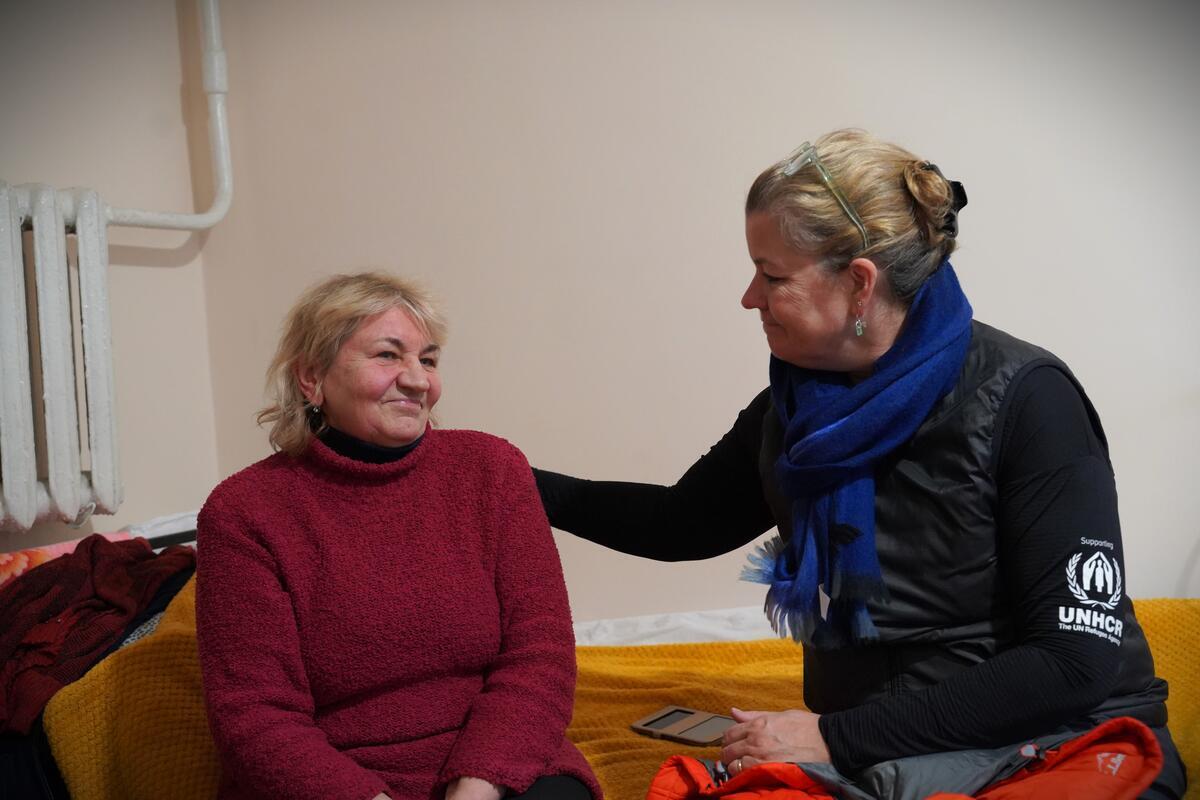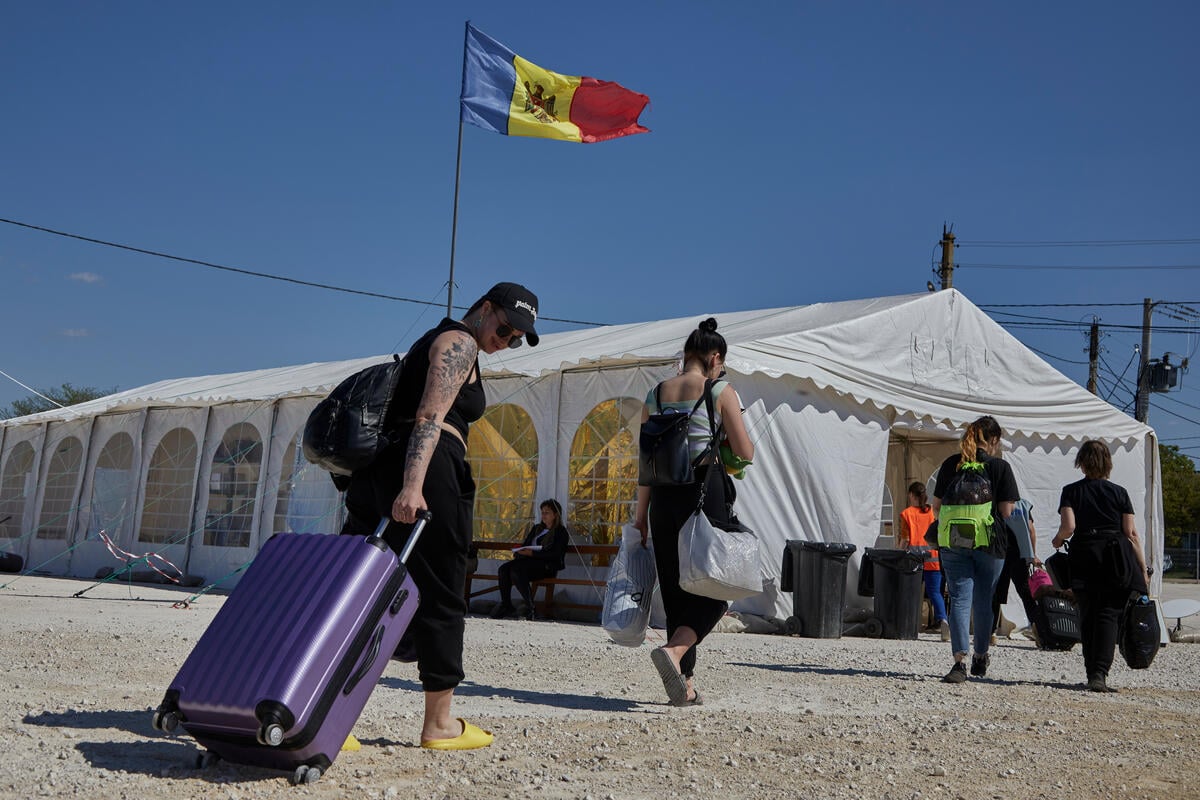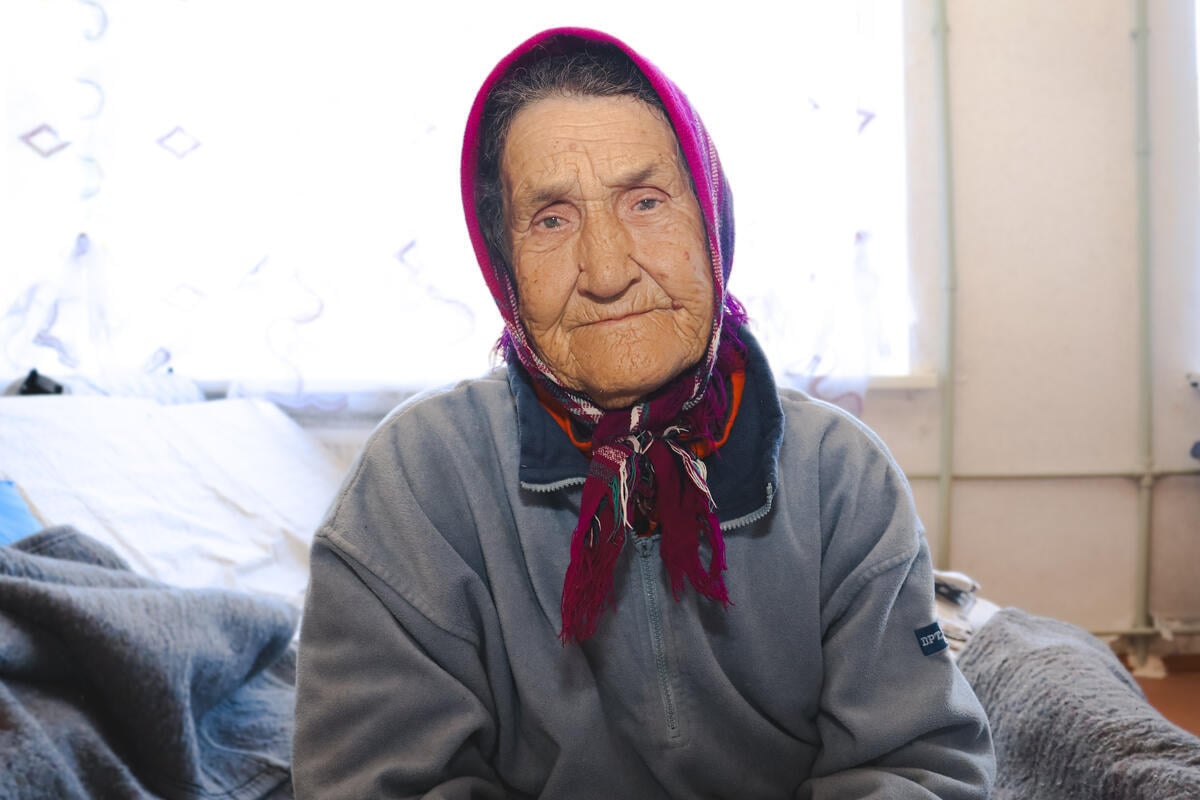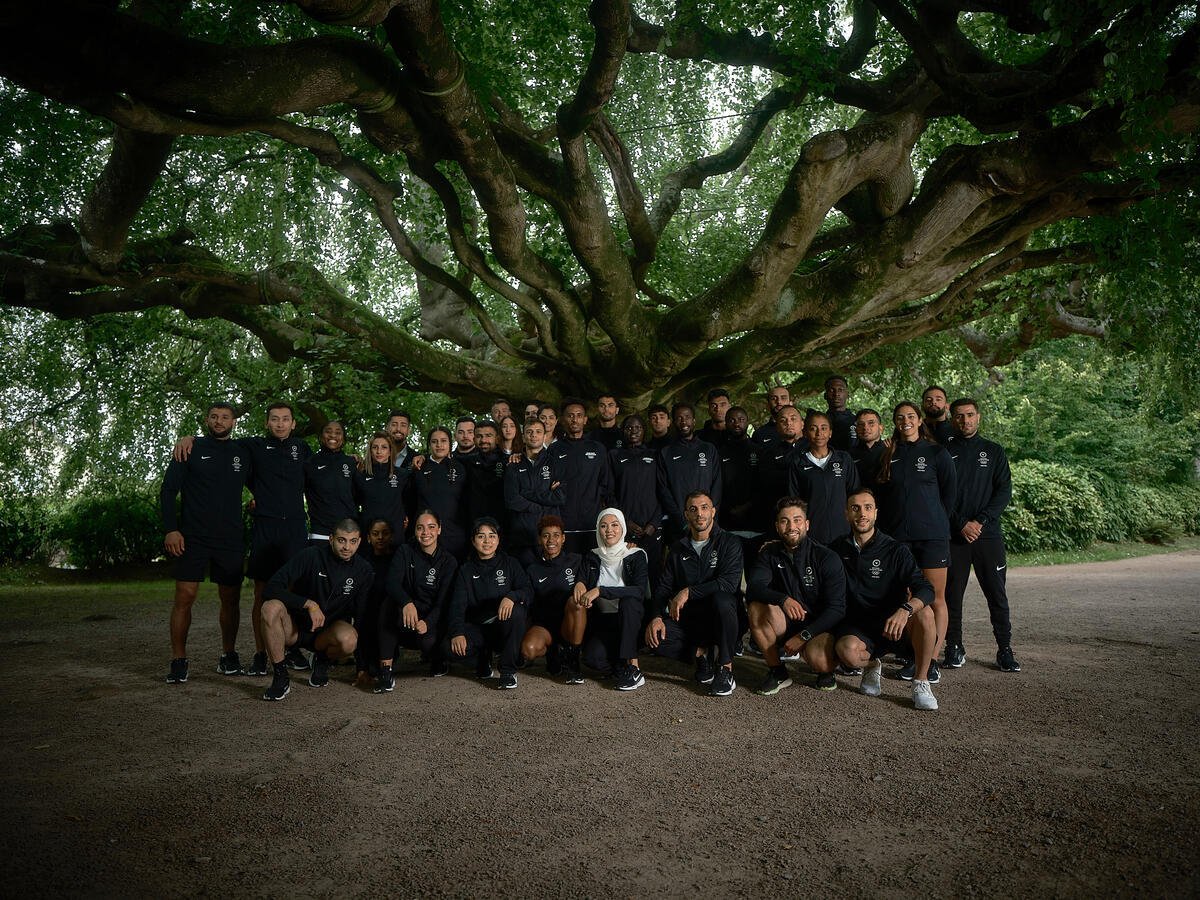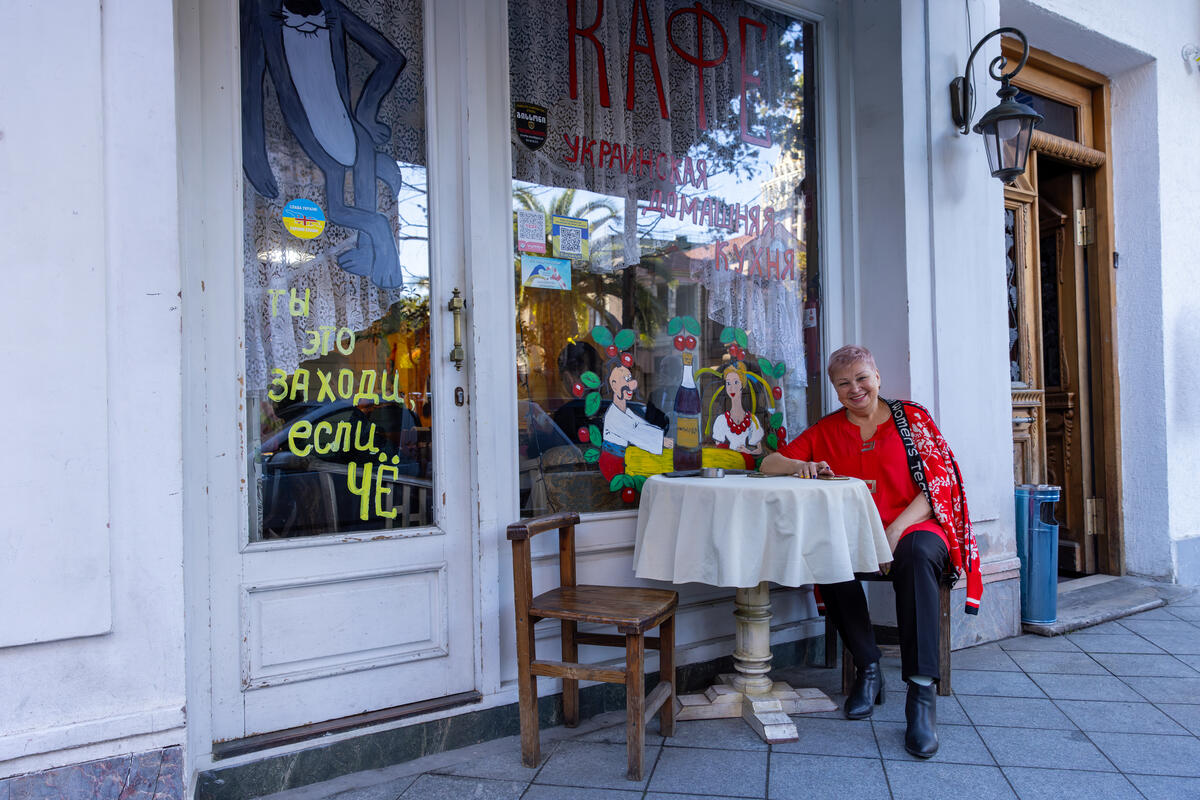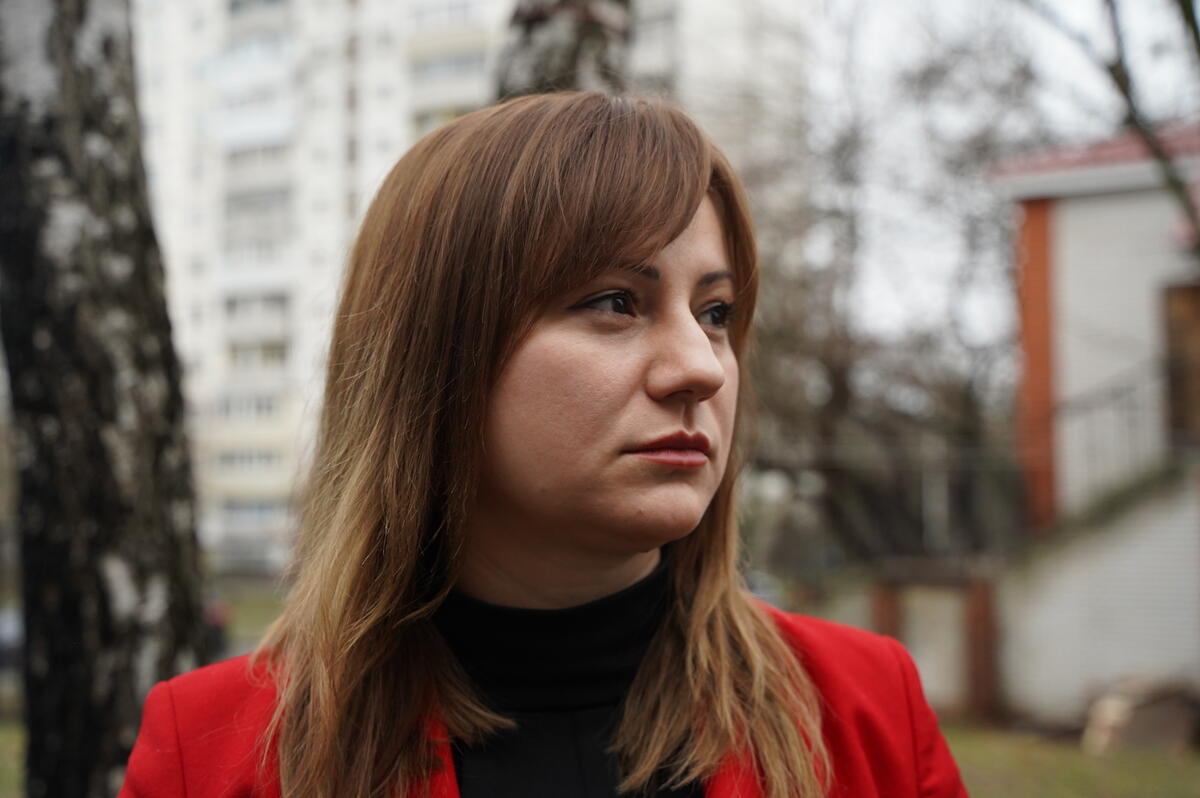House repairs restore hope for Ukrainian family after year of turmoil
“Now, there is another war,” said Kateryna, her voice tremulous with age and emotion. “We can’t understand it.”
A year on from Russia’s full-scale invasion of Ukraine on 24 February 2022, a third of the population remains uprooted and 17.6 million people inside the country require urgent humanitarian assistance. With fighting still raging in the east and south and widespread destruction to homes and infrastructure far beyond, the needs of millions of people are greater now than ever.
Within days of the invasion, Kateryna and her family heard distant gunfire, explosions and the roar of low-flying aircraft. A week later, the fighting had reached their doorstep. Kateryna and her husband Ivan were forced to take shelter in the cellar of their barn along with their daughter Olena, 51, and her husband, who share their house.
“There was a heavy battle. We could hear them shooting at the edge of the village,” Olena said. “We hid the whole time in the cellar – it was very scary.”
Kateryna’s granddaughters Svitlana and Oksana, who lived nearby and were both pregnant at the time, had fled to the neighbouring village of Korolivka before the worst of the fighting. Olena and her husband were staying with their parents and trying to persuade them to leave after a week sheltering in the cellar, but with no one to take care of the family’s dairy cow and other animals, Kateryna and Ivan refused to leave.
“They said: ‘We won’t go’,” Olena said of her mother. “It was very scary to stay longer, because the houses around were already burning.”
Kateryna and Ivan were finally persuaded to leave by the Ukrainian Armed Forces, who warned it was too dangerous to stay put. A neighbour who remained in the village despite the risks offered to take care of their animals.
When the family returned several weeks later once the fighting had passed, they found mounds of rubble and dozens of burnt-out structures where homes once stood.
Luckily, Kateryna’s house was still standing and their cow had survived, but the garden was pockmarked with craters and the explosions had taken a heavy toll on their home and outbuildings. “The windows and the roof were damaged [and] everything was broken – all the garages and the woodsheds – everything was scattered about,” Olena said. “[But] there were some rooms left where it was possible to stay.”
Kateryna’s granddaughter Svitlana was not so lucky. The house her husband had recently built for the young family was hit by two rockets, destroying it beyond repair.
Standing on the concrete foundation where their house once stood, Svitlana, 29, described the sense of loss on seeing their home in ruins.
“My husband said, ‘Just think, I built it myself and now I have to dismantle it’,” said Svitlana, unable to hold back tears. “We never thought we would need to build two houses in our lifetime.”
With Svitlana and her family left homeless, four generations of the Humennyy family are now living in Kateryna’s house – the youngest, Matvii, Kateryna’s great-grandson and Svitlana’s son, was born just weeks after his parents' home was destroyed.
Throughout the warm spring and summer months, the family made the best of the situation, crowding into the few inhabitable rooms, covering empty windows with plastic sheeting, filling craters in the garden, and clearing piles of debris. But as autumn approached and cold weather loomed, they grew increasingly worried about the gaping holes in the roof and walls.
That was when UNHCR, the UN Refugee Agency, and its partners stepped in. With funding provided by the European Union, UNHCR employed local contractors to carry out essential repairs, fixing the roof and replacing blown-out windows and doors.
Together with its network of mainly Ukrainian partners, UNHCR has so far been able to help more than 4.3 million people inside the country, including internally displaced people and war-affected communities. But with the ongoing war taking a rising toll on civilians, increased support is required to save lives and support reconstruction efforts where possible.
"With the war, everything changed."
Since the repairs were completed last September, the Humennyy house has become a sanctuary again.
“Everything is fine. We all live together, and I even worry less because everyone is close,” Olena said. “We are grateful that everyone has helped us from different countries.”
“With the war, everything changed. Everything has started again from scratch,” she continued. “I would like the war to end and peace, victory to come. So that we can start living, making plans.”
A few days later, Svitlana received some good news: following an assessment, UNHCR will provide construction materials to help rebuild their home.
“It will help us to rebuild quicker,” she said, adding, “The [new] house will be a bit smaller in size because everything is more expensive compared to when we started.”
While her husband handles the construction, Svitlana is making important changes to the exterior. She has planted young saplings at the bottom of the garden, overlooking the low plain from where the shells that destroyed their house were fired.
“The trees in the garden are growing and we will plant more, to surround our house with plants so that nobody can see it from afar.”










